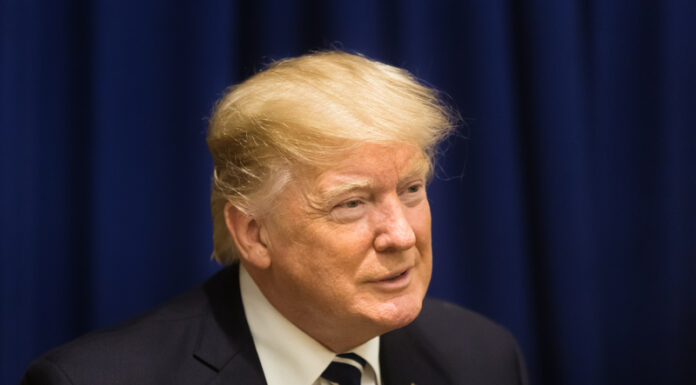President Donald Trump has prompted renewed concerns regarding his cognitive abilities following difficulties in understanding basic questions posed by reporters at recent White House events.
The latest incident took place on Wednesday, July 30, 2025, when Trump appeared perplexed by “burn bags”—standard government tools for destroying classified documents. When asked by a reporter about FBI Director Kash Patel’s discovery of burn bags containing materials from the Russia investigation, Trump initially responded, “He said what?”
After the reporter repeated the question twice, Trump eventually replied, “Oh, I thought you said appointed a man named Burn Bag, go ahead.” The confusion over common government terminology triggered widespread mockery online, with many questioning how a president could be unfamiliar with such basic security equipment.
This incident follows another concerning episode earlier this month at a migrant detention facility in Florida called “Alligator Alcatraz.” When queried about the duration detainees would stay at the facility, Trump misunderstood the question, focusing instead on his personal connection to Florida, saying, “I’m gonna spend a lot. This is my home state. I love it. I’ll spend a lot of time here.”
Journalist Mike Rothschild commented on the situation, stating, “He’s obviously losing his cognition and coherence in a way that’s becoming impossible to cover up or work around.”
Experts in mental health have expressed growing concern over what they perceive as signs of cognitive decline. Dr. John Gartner, a psychologist with experience teaching at Johns Hopkins University Medical School, points to Trump’s difficulties in completing thoughts and his habit of substituting fabricated words for authentic ones as symptoms of dementia.
Dr. Gartner predicts that Trump’s condition will worsen during his second term, resulting in a “Weekend at Bernie’s” scenario where staff members attempt to conceal the president’s mental state instead of addressing it directly.
Language experts have also raised concerns. An in-depth analysis has shown that Trump’s speech has become increasingly disjointed over time, with shorter sentences, confused word order, and long digressions that deviate from the original topic. Clinical psychologist Dr. Ben Michaelis noted that Trump is veering away from logical thinking toward what experts refer to as “circumstantiality.”
“That’s really where you sort of start talking about a topic, and then you just really sort of lose the thread entirely,” Michaelis explained during a PBS NewsHour interview. “And there’s a lot of that we’re seeing in his speech patterns.”
Additional incidents have amplified the concerns. During an energy summit in Pittsburgh, Pennsylvania, Trump recounted a fabricated story about his uncle teaching the Unabomber at MIT. However, the Unabomber never attended MIT, and Trump’s uncle had passed away years before the bomber was apprehended. Trump also incorrectly stated that President Biden appointed Federal Reserve Chairman Jerome Powell, although Trump himself made that appointment in 2017.
MSNBC columnist Michael A. Cohen asserts that Trump often appears unaware of significant events occurring within his own administration and can seem uninformed about major policy developments. Trump seemed confused about his administration’s decision to pause military aid to Ukraine, asking a reporter if she knew who had ordered the halt.
At 79, Trump is the oldest individual ever sworn in as president for a second term. If he completes a full term, he would become the oldest sitting president in U.S. history.
In April, Trump’s doctor released a health report stating the president was in “excellent health” and had passed cognitive tests. The report noted bruising on Trump’s hand was due to aspirin use and frequent handshaking. However, critics highlight that this assessment came from Trump’s personal physician rather than an independent medical evaluation.
Harry Segal, a psychology lecturer at Weill Cornell Medicine, observes troubling patterns in Trump’s recent behavior. He notes that Trump has been avoiding situations where he needs to respond quickly and clearly, including refusing a second presidential debate and canceling a “60 Minutes” interview.
“Second, he has become more impulsive, another sign of incipient dementia,” Segal said.
The Trump campaign dismisses these concerns as partisan attacks. Former Trump aide Alyssa Farah Griffin has noted that Trump appears to be “slowing down,” but campaign officials reject such observations.
Some Republican lawmakers are reportedly being encouraged to investigate Trump’s mental fitness, marking a significant development since such calls typically originate from political opponents rather than allies.
Medical professionals emphasize that a proper diagnosis of cognitive decline requires an in-person evaluation by qualified doctors. Nevertheless, the increasing number of public incidents has intensified scrutiny of Trump’s mental acuity as his second term progresses.
Trump asserts he feels “about 35 years old” and describes his cognitive health as “exceptional.” His supporters argue his speaking style has always been unconventional and that critics are overanalyzing his typical behavior.
The debate over Trump’s mental capacity reflects broader questions about age and leadership capability in American politics, particularly as both major parties have nominated older candidates in recent elections.








